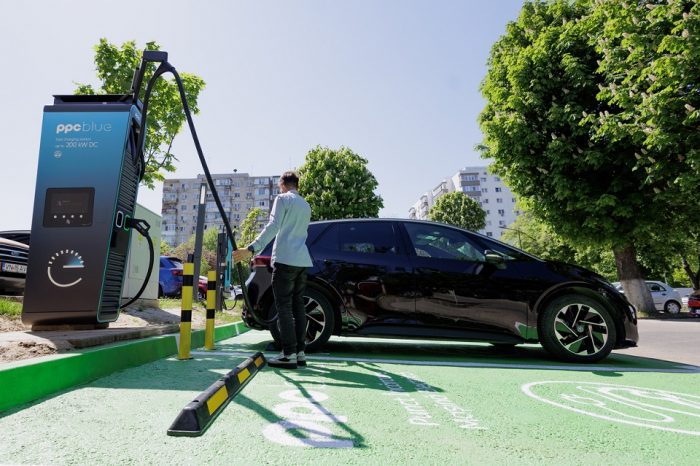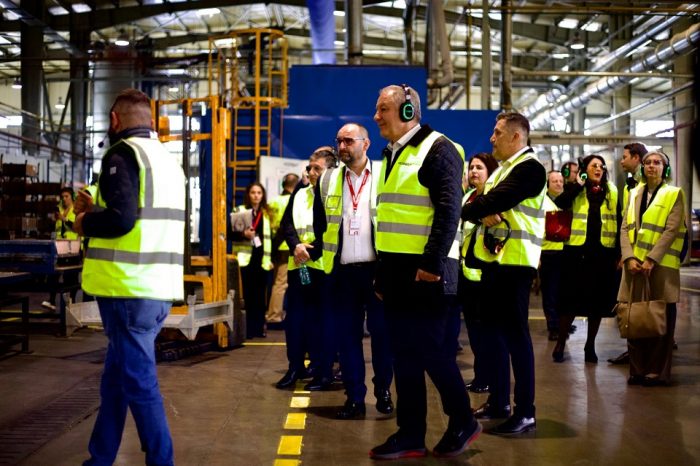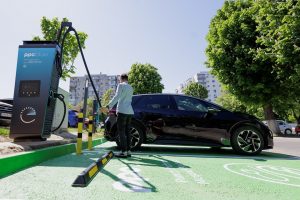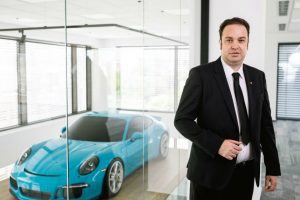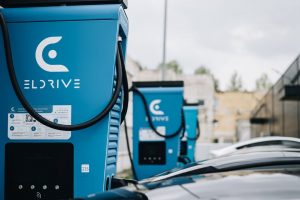Global auto market, between increasing electric car sales and escalating trade barriers. Europe adjusts strategy, Romania suffers from “Rabla” delay

Opinion by Daniel Anghel, Country Managing Partner PwC România
The global auto market is facing an increasing risk of fragmentation into three geopolitical blocs, in the context of escalating trade barriers and international tensions between the US, Europe and China. This development occurs at a time when battery electric vehicles (BEVs) reached a record global market share of 16% in the first quarter, after a 42% increase in sales compared to the same period in 2024, according to the latest Autofacts report, conducted by PwC. The development was mainly driven by the Chinese market, which generated over 60% of global sales and reached a share of 27%.
Despite this growth, the transition to electromobility is not proceeding at the speed previously forecast. Geopolitical uncertainties, as well as divergent policy decisions at the international level, complicate the adaptation of local automotive industries to new requirements.
Europe is trying to remain competitive through support and flexibility measures, while large markets such as the US and China are adopting aggressive protectionist policies. In this volatile landscape, Romania needs to rethink its stimulus policies in order not to miss the transition to electric mobility.
Europe, recovery in major markets, but with persistent challenges. Romania, steep decline
After three quarters of decline, Europe has recorded a solid recovery. In the top five major markets — the UK, Germany, France, Italy and Spain — BEV sales increased by 30% in Q1 2025. The UK and Germany are leading this recovery, with increases of 43% and 39%. Italy and Spain are following closely behind, with advances of 73% and 69%, albeit from a lower starting point. France is the only one to have registered a 7% decline, following the expiry of state subsidies.
Despite the upward European trend, Romania has recorded a sharp decline in electric vehicle sales, an evolution generated by the delays of the Rabla program. According to data from the Directorate of Driving Licenses and Vehicle Registration (DRPCIV), in the first quarter of 2025, electric vehicle registrations decreased by 36.4%, which continued in April with a 70% decline, all against the backdrop of the delay of the Rabla program. It is expected to start this week. The program is very important, as the Romanian automotive sector risks losing ground at a critical moment of global transformation.
European Action Plan to Relaunch the Automotive Industry
To face global competition and support the green transition, the European Commission launched in March 2025 an action plan dedicated to the automotive industry, a sector that contributes 7% to EU GDP and supports around 13 million jobs.
This plan targets five key areas: innovation and digitalisation – investing in products and reducing external technological dependency, clean transition – more flexible rules on emissions and accelerating the development of charging infrastructure, resilient supply chains – investing in critical raw materials for batteries, skills and social adaptation – professional retraining towards electromobility and a level playing field – supporting fair competition with subsidised foreign manufacturers.
The European Parliament has approved the temporary relaxation of CO₂ emission targets for cars and vans. Compliance is no longer assessed annually, but on the basis of an average over the period 2025–2027. The move comes in response to industry calls for fines of up to €15 billion for lagging behind global rivals in electrification.
Tense geopolitical context
Outside Europe, the United States and China are taking drastic measures to protect their respective industries, in a trade-off of tariff increases that has now been suspended for 90 days.
China, the world leader in battery production (98%) and a major player in the lithium-ion battery value chain, continues to invest heavily in innovation to reduce its dependence on foreign technologies.
The global automotive industry is reshaping itself between economic pressures and the transition to electromobility, and success will depend on the industry’s ability to innovate, collaborate and adapt quickly to new market conditions.


